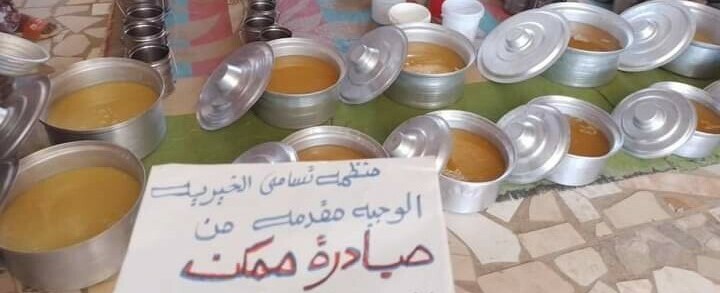Rania Haroun, founder of the Mumkin Initiative (It is Possible), has raised concerns about the potential shutdown of a communal kitchen in Al-Sahafa, Khartoum, due to a lack of financial support.
Rania told Radio Tamazuj, “The initiative established a communal kitchen in Al-Sahafa, initially providing two meals a day. However, financial constraints have forced us to reduce this to one meal a day.”
She explained that their primary method of gathering support has been through social media posts sharing their bank account number, which serves as the main source of funding. “We hope to find supporters to continue providing assistance,” she added.
Previously, their support came through active communal kitchens in various areas, including Omdurman, the Northern State, and Al-Wadi Al-Akhdar.
The initiative began in 2017 with a group of volunteers from across Sudan. Rania noted that past initiatives had also been launched during crises to help people, focusing on awareness, direct support, and particularly on women and children.
Since the beginning of the war, they launched a campaign called “Binitshael” (We Stand for Each Other), with the first support effort on April 17, 2023. This campaign continues today with help from generous donors.
Financial support has enabled the “Mumkin Initiative” to reach many areas, especially those trapped in conflict zones, through the “Bankak” electronic banking application. They have provided direct financial aid and supplies to camps on the Sudanese borders.
Financial aid has ranged from 10,000 to 50,000 Sudanese pounds, depending on family size, with additional support for medical cases. The initiative continues to support orphans and widows by providing monthly allowances. They also maintain a small financial reserve to cover gaps during periods of fluctuating support, as experienced at the start of the war.
Humanitarian activist Osman Ahmed Mohammed told Radio Tamazuj, “The initiative supported vulnerable families during Ramadan with 20 bags containing food supplies.”
He also mentioned financial support provided to families in Al-Geneina, Darfur, and to displaced people in Adré on the Chadian border with Sudan. The initiative supported 65 families, alleviating some of the citizens’ suffering.
Mohammed Taj Al-Sir, responsible for the Al-Sahafa kitchen, told Radio Tamazuj, “The kitchen started last November with two meals a day, which was later reduced to one meal due to rising costs.”
He pointed out that the kitchen’s operational capacity initially covered 37 individuals but now serves all blocks in the Al-Sahafa area.




